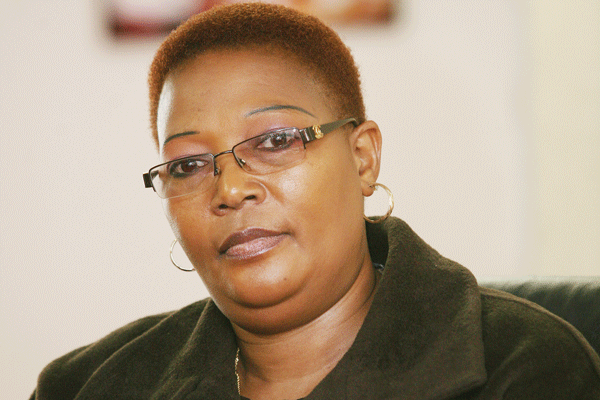Source: 2017: A year of missed opportunities for opposition parties – The Zimbabwe Independent December 22, 2017
THE year 2017 has been tough for opposition parties in the country, as they grappled with challenges that reduced them to mere spectators on the political landscape, analysts have said.
By Wongai Zhangazha
It has been a year of bickering in the main opposition MDC-T with the low point being the assault of its vice-president Thokozani Khupe in August for going against a proposed coalition with other political parties.
Khupe was beaten up by MDC-T youths while attending a joint MDC-T national executive committee and provincial executive committees meeting in Bulawayo.
The meeting was held a day after Khupe and other officials, including MDC-T national chair Lovemore Moyo snubbed the MDC Alliance signing ceremony at Zimbabwe Grounds in Harare.
The infighting took place despite the MDC-T crafting an internal document titled Elections Think Tank Report — Project 2018. The party committed itself to a thorough self-introspection and identification of internal weaknesses bedeviling the party in order to compete more effectively in next year’s elections and avoid past mistakes.
Although opposition parties under the MDC banner came up with the MDC Alliance, analysts say the parties failed to attract the much-needed attention from Zimbabweans.
Splits were the order of the day for smaller opposition political parties with Joice Mujuru’s National People’s Party splintering several times. Tendai Biti was fired from the People’s Democratic Party for forging an alliance with MDC formations and other opposition groups without allegedly following proper party procedures.
In the midst of the squabbles former Industry and International Trade minister Nkosana Moyo launched his party, Alliance for People’s Agenda (APA), at a five-star hotel in Harare promising to rebuild and reconstruct Zimbabwe.
However, his launch was met with criticism with some speculating that he was a Zanu PF project, a claim he dismissed.
The biggest blow for MDC Alliance leaders this year was when they put themselves in an awkward position by supporting the military take-over which led to the resignation of former president Robert Mugabe.
Analysts said opposition leaders erred by supporting the military intervention in the hope of getting a share of the spoils yet it was a Zanu PF matter which was meant to deal with the party’s succession issues.
MDC-T was accused by human rights defenders of double standards on democratic and human rights principles. They not only supported military intervention, which many equated to a coup, but have largely been silent as hordes of people were captured and tortured by the army.
Analysts say the opposition missed a golden opportunity to push for reforms of the military and police, which Mugabe used as tools of repression.
For years, the MDC-T has been a victim of repression at the hands of the military and other instruments of coercion amid claims that hundreds of opposition supporters were killed during the June 2008 presidential run-off.
Opposition political parties and human rights defenders thus showed double standards when they remained silent when several people, including former finance minister Ignatius Chombo, were seized and tortured by the army.
As if this were not enough, MDC Alliance leaders comprising Tendai Biti and Nelson Chamisa were in the firing line following their recent trip to the United States to give testimony on the situation in Zimbabwe to the Senate Committee on Foreign Relations.
They were slammed and accused of indirectly calling for the continuation of sanctions.
Political analyst Stanley Tinarwo said it was time the opposition upped its game and countered the narrative that there was no longer any opposition to talk about.
“There are very limited options for the opposition here. They may simply have to buckle up and get back to campaigning with a renewed vigour and vigilance that speaks more to people-centred politics. At the moment, their public popularity cannot exceed that of the ruling establishment,” Tinarwo said.
“Opposition leaders therefore need to stop being ambivalent and pursue electoral politics with greater diligence and vigour or else they will be defeated in 2018 and resoundingly so. They need to re-coagulate their support bases, conclude their alliance talks and avoid easy co-optation into ruling party processes that they do not have equal say on.”


COMMENTS